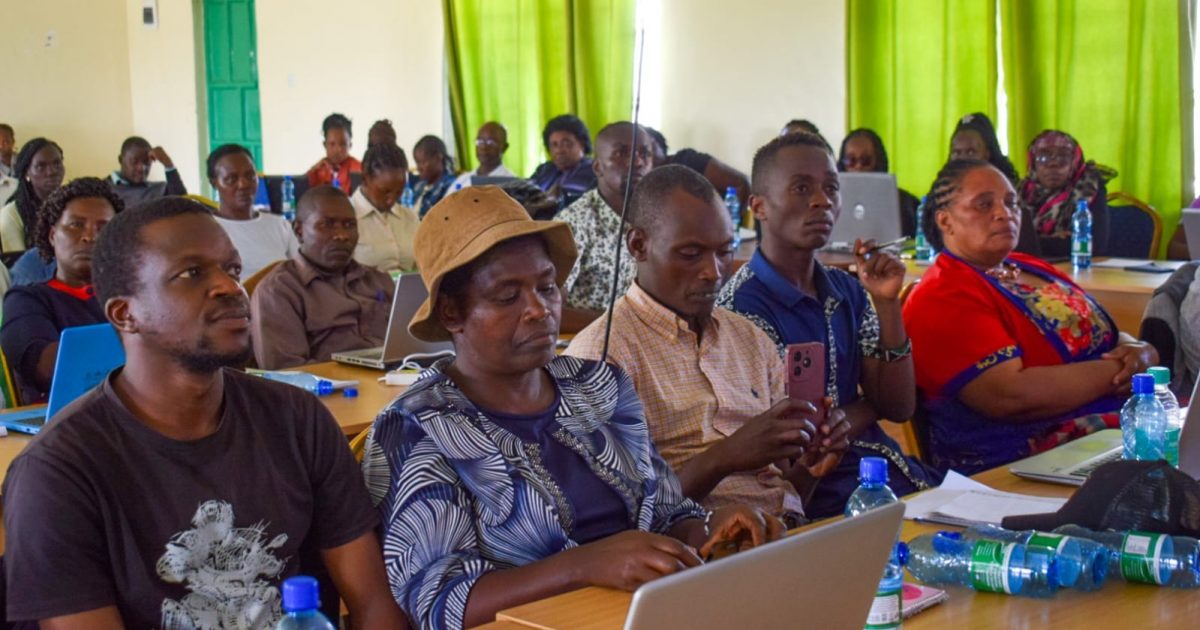The County Government of Nakuru has rolled out a program to digitize business models of Savings and Credit Cooperative Organizations (SACCOs) to make their operations more efficient and transparent while being responsive to their customers’ needs.
County Cooperatives Chief Officer Mr Kibet Kurgat said the County had initiated a training program for the SACCOs officials on digitization of their operations aimed at helping them recognize the disruptive impact of new technologies on financial services.
Speaking during the training of the officials from 40 SACCOS, Mr Kurgat said the ever-changing market trends necessitated that SACCOs change their modus operandi to tap and retain the dynamic customers by digitizing their operations so as to enable them to get the services conveniently.
The training, he added was being implemented through National Agricultural Value Chain Development Project (NAVCDP), where 20 bookkeepers and 20 SACCO treasurers were undergoing training in the two-day event. The first batch of trainees is drawn from SACCOs in Naivasha, Bahati, Molo, Kuresoi North and Njoro Sub counties.
Through the digital training, the Chief Officer was optimistic that skills gained will help in reducing paperwork, streamlining processes, saving resources and lowering administrative costs in addition to enabling customer in a remote village and small townships to access credit and saving facilities without making a visit to a physical office.
“Digitization provides an avenue for SACCOs members to transact and get services instantly at the touch of a button and services such as account opening, transacting and loan application are made easier by digitization where young generation will be attracted to these products,” noted the Chief Officer.
While emphasizing the vital role SACCOs play in supporting local farmers and agribusinesses and their central role in uplifting farmers and value chain participants throughout the county, Mr Kurgat called on farmers to join cooperatives, stressing that membership would enable them to access a range of resources and services, including financing, which can improve their productivity and resilience.
Mr. Kurgat pointed out that SACCOs in Kenya have grown exponentially due to their ability to provide simple, accessible and reliable financial services to the large unbanked low- and middle-income population.
According to the SACCO Societies Regulatory Authority (SASRA), Kenya’s more than 22,000 registered SACCOs serve 15 million members and control over 1.5 trillion in assets, Shs 1 trillion in deposits and hold 30 percent of national savings
Nakuru County Cooperatives Director Ms Josephine Ngandu said SACCOs must take the digital leap or risk falling behind the competitive curve.
While emphasizing that the SACCOs should rethink, reengineer and reimagine their business models to adapt to current realities, Ms Ngandu indicated that digitization has many potential benefits for the stakeholders as digital driven operational efficiency saves costs allowing competitive products and services.
With the high prevalence of mobile services and money services, the Director observed that innovative technology platforms will make SACCOs even more attractive to digital-savvy clientele.
“Digitized systems will enable SACCOs to understand their clients better through new financial technologies like data analytics backed by Artificial Intelligence (AI),” noted the Director.
Kenya is currently reviewing its legislative and regulatory framework within the co-operative sector via the Co-operative Bill 2024 and the Sacco Societies Amendment Bill 2024 that are currently in parliament.
These reviews shall enable the creation of a legal and regulatory framework that protects the most critical part of co-operatives, which is the member’s deposits.
By Esther Mwangi





